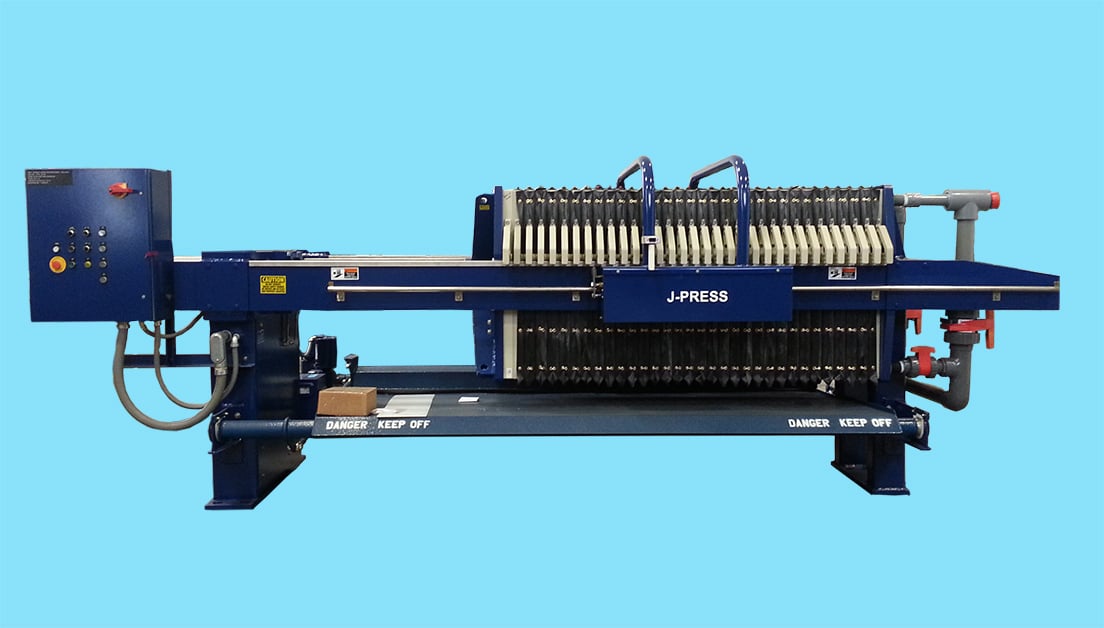Challenge
Rocco, Inc. – a poultry processing plant in Virginia – required many waste and wastewater treatment solutions due to strict Federal and State Regulations. Technicians at Evoqua Water Technology helped perform on-site test work to create a solution best suited for Rocco's needs.
Poultry processing today requires sophisticated, strategic planning in order to be competitive in the marketplace and profitable on the books. It's a high volume industry where any one operator processes tens, even hundreds of thousands of birds on a daily basis. This is especially true for a complete, vertically integrated food processing facility like Rocco, Inc. of Harrisonburg, Virginia, which processes approximately 55,000 (fresh) turkeys daily.
Their operation includes feed mills; turkey breeding, hatching and growing operation; processing and further processing plants; even proprietary and private label packaging and distribution. The turkeys processed on any given day were in the planning schedule as long as two years prior to processing.
Food industry operations such as Rocco have extensive waste and wastewater treatment requirements, especially at the processing plant level. The meeting of waste treatment requirements is becoming more and more difficult due to stricter Federal and State regulations. In addition, many local municipalities have reached their capacity to process wastewater effluent from an expanding industry base. This requires industry to reduce contaminants in their wastewater prior to discharging their effluent to the sewer system. Regulations have increased the rates for the wastewater discharged and imposed surcharges for exceeding lowered limits for BOD (Biochemical Oxygen Demand) and TSS (Total Suspended Solids).
Solution
The biological treatment system they installed is an activated sludge processing system. The whole procedure starts at the processing plant that processes approximately 160,000 birds a day. The plant consumes an average of 650,000 gallons of fresh water flow daily.
Initially the wastewater goes through a pretreatment process that consists of two shaker screens and a revolving screen.
From there it is pumped into a holding tank and on to an air flotation unit that skims any surface grease. The wastewater now contains mostly organic material and suspended solids.
This mixture, which has a BOD level of 400-600 ppm and suspended solids of 400-700 ppm, is pumped up to their large anaerobic lagoon. This nutrient rich water is attacked by naturally occurring bacteria. That bacteria goes through its life cycle, feeding on the nutrients in the wastewater, reproducing and dying. This has the effect of purifying the water. These organisms form the basis of the sludge that is processed through Rocco's biological activated sludge system.
This system draws the oxygen deficient, bacteria laden wastewater down from the anaerobic lagoon to a 1.2 million gallon aeration tank, where a large boom continuously agitates the water and at the same time forces air into the water to aid in nitrification by the microorganisms of the wastewater. The wastewater from the lagoon has pH factor of about 6.7 – 6.8 and needs to be in the range of 7.5 to achieve the desired nitrification.
From the aeration tank the water passes to a clarifying tank where the waste material settles out as sludge. The overflow from the clarifier is pumped through a final chlorine treatment trough and allowed to flow out to a nearby stream. BOD removal by this process is about 98% and meets regulatory standards.
The mixed liquor is pumped back and forth from the clarifier and the aeration tank in a process that continually builds up the concentration of the sludge at the base of the clarifier. This maintains a sufficient level of sludge to keep the system functioning at an optimum rate.
The sludge is then pumped into a holding tank, called the "sludge hotel" between the clarifier and the aeration tank.
From there the "mix" is pumped to a sludge tank where a polymer is added to create a sludge floc that is thick and slurry-like. These suspended solids are the remaining source of problem pollution that requires dewatering to achieve a high dry solids filter cake suitable for disposal at a landfill.

A number of physio-chemical techniques have been used to filter out these organic, insoluble pollutants. Based upon the successful use of a J-Press® filter press by JWI® - an Evoqua Water Technologies brand - in their wastewater treatment plant at their turkey operation, Rocco engineers decided to have the mixed liquor tested and experimented with at the Evoqua Water Technologies laboratory in Holland, Michigan. Testing with a variety of polymers resulted in producing an acceptable filter cake of approximately 20-25% solids as well as a filtrate that would meet all regulatory standards. As a result of these tests, Rocco has installed a 1200 mm, 50 cu. ft J-Press® filter press that operates in conjunction with the activated sludge system.
Results
The J-Press filter press performance has been excellent. Cake solids average 35%, and a very clear filtrate is produced.
This successful application of using a filter press for organic suspended solids removal is an innovative approach to handling the pollution problem inherent in sludges produced by secondary treatment systems. The advantages of using this type of device are two-fold:
- It is the most effective filtration system available for producing clean reusable or dischargeable water.
- The residual filter cake has a high dry solids content that is non-hazardous and readily transportable to any local landfill.
The economies of using a filter press become evident when you consider the reduced waste sludge that needs to be hauled away to the landfill. Less to haul and less to dump results in a substantial number of dollars saved every month for Rocco Farms' Chicken processing operation.